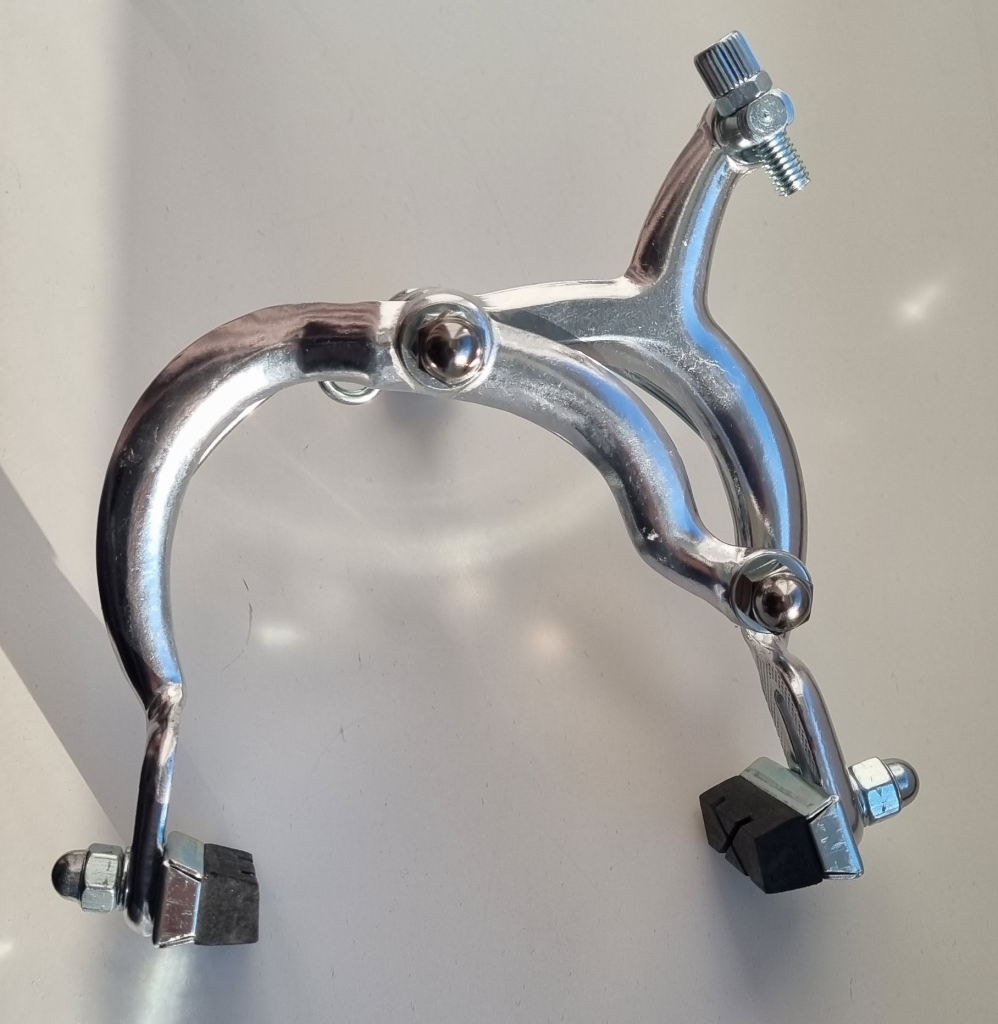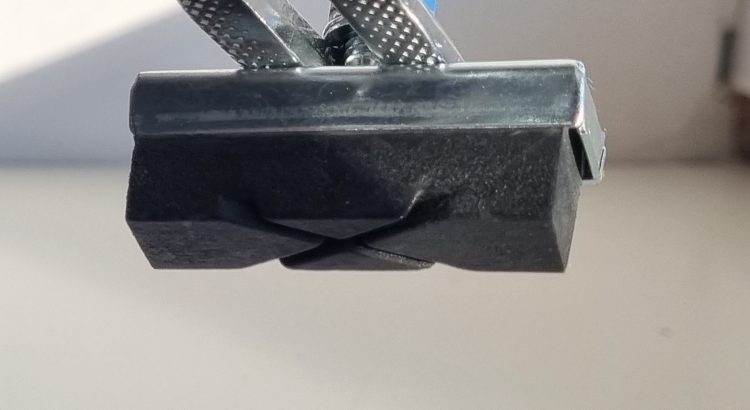What are rim brakes?
Rim brakes are a type of brakes found on bikes. The name is from the fact that rim brakes all use the rim of the wheel. They are a popular option for breaking because of their price and easy maintenance.
Are rim brakes are obsolete? That’s a good question to have when buying a new bike.
If you look at high-end bike manufacturers, the answer goes towards yes as they sell fewer and fewer bikes with rim brakes. While looking at the total of bikes used daily on earth, the answer will be a hard no, the rim brakes are here to stay.
What are the different types of rim brakes?
Caliper Brakes
Found on most road bikes that use rim brakes. There are different types of caliper brakes:
Dual pivot. Has a dual pivot on the fork and the brake cable is on the side. The pivots are not on the same side, with the conventional model having one of the pivots on the center.
Side pull. Has only one pivot, in the center of the fork. The brake cable is also on the side.

Center-pull. Usually found on older bikes. Has two symmetrical pivots and a broken cable on the center with the help of a saddle.
For caliper brakes, all pivots are above the rim break.
V Brakes
They are very good for short bursts of braking and with a lighter bike load. Because of this, mountain bikes have them. The pivots are below the rim brakes, while the brake cable is on the side. They are also known as linear-pull brakes.
Cantilever Brakes
Have the pivot placement the same as V brakes, which would be below the rim. The brake cables join in the center. There are 2 different models for cantilever brakes, one with threaded brake pads and the one without.
U brakes
Found on BMX bikes. The rim has pivots above it. The back brakes are usually found on the interior part of the frame, for you to be able to break with your foot for doing stunts.
Why are they popular?
They are popular because of their cheap price, easy maintenance, and lightness. Thinking from a manufacturer’s point of view, it’s easy for them to build them, as rim brakes have few parts and a few bolts and cables to hold them together. If you want the cheapest bike you can get, they will come with rim brakes.
Beater bikes(or pub bikes) will always have rim brakes. They are not that fragile and expensive as disk brakes, so it’s a no-brainer to have the cheapest options on the cheapest bike you own.
What are the advantages of using a rim brake?
- Ease of fixing. There are no questions to be had when you see something’s off.
- Cheap replacement parts. No matter the rim brake type you have, there is no need to worry. The replacement costs almost grow on trees.
- Light weight. On bikes any extra weight is important. That’s why in racing they held off changing to disks as long as they could.
- Appearance. A rim-based breaking bike looks nicer, there’s no doubt about it.- Prevents some types of accidents. In this regard, disk brakes are a sharp object that you don’t want near you when the unfortunate event of falling off your bike happens.
What are the disadvantages of using a rim brake?
- Breaking in any other than environment apart from the dry one may cause some issues. Do not trust your brakes the same in different environments!
- Wheel damage. There is a serious concern on rim damage, so cleaning your rim and replacing your pads need to happen better sooner than later.
- Wheel size limit. These types of brakes rely on using the rim, so their existence limits your wheel size.
- Mudguards. Be careful when choosing mudguards. They need to live between the brakes and the wheel, using that precious space limit we’ve talked about earlier.
How do rim brakes compare with disk brakes
There are other articles online that cover this topic to a great extent, but here’s the summary if that’s enough for your taste:
Even though disk brakes have been around for a very long time, they became popular only recently. Every year the high-end bike manufacturers offer fewer and fewer rim brake options.
Disk brakes are more reliable and have a better braking system in any condition. They are already the manufacturer’s choice when building most new bikes.
Unfortunately, bikes cannot interchange brake types, so be careful when buying your next one.
Best brake types for the different conditions
As explained above, disk brakes win in every condition. Being it the weather, the total bike load, or even bike type, disk brakes are always winning. As for the types of rim brakes, those are different and need some extra research to see which would be best for your type of biking activity.
For the 2021 lineup, here are what some manufacturers offer:
| Bike manufacturer | Total bikes with rim brakes | Total bikes |
| Canyon | 7 | 53 |
| Rose | 3 | 30 |
| Specialized | 6 | 164 |
| Cervelo | 0 | 12 |
With e-bikes, this question has a blunt answer. Given that the total weight of the bike is bigger and the average speed is now higher, disk brakes are a must. There is no wiggle room here since safety is the number 1 priority when riding an e-bike.
Other relevant questions regarding rim brakes
- Are bike rim brakes universal? Yes. There are is no rim brake described above that is specific for a bike. So if your bike has caliper brakes, buying a new caliper brake will do fine.
- Are rim brakes aero? The difference between rim brakes and disk brakes when it comes to aero is so tiny, that it doesn’t matter for any type of activity you will be doing. Parcours have done a test of the drag difference.

Conclusion
In conclusion, are rim brakes obsolete? The answer is yes and no. Rim brakes will become obsolete in high-end bikes. Should that influence your decision on choosing a new bike? Only if you’re looking at resale value. If replacement parts are the only concern, stop worrying. The plethora of bikes in the world having rim brakes will guarantee that parts will be still made years to come.
